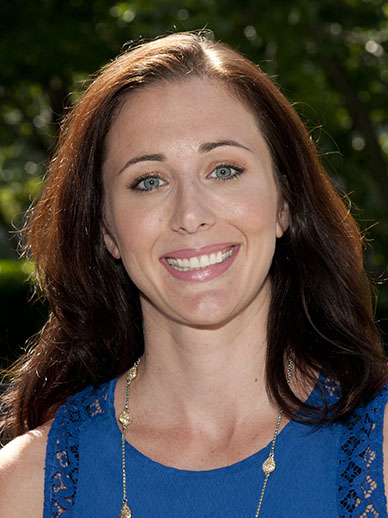 Mindfulness is not just for adults.
Mindfulness is not just for adults.
Jessica Kendorski, professor in the department of school psychology at the Philadelphia College of Osteopathic Medicine, has more.
Dr. Jessica Glass Kendorski is a licensed psychologist in Pennsylvania, and maintains certifications as a Board Certified Behavior Analyst (BCBA) and School Psychologist nationally (NCSP) and in New Jersey. She is faculty advisor for PSI CHI, the national honor society in psychology.
She actively works with school districts to improve systems for all students through the reform of school and district-wide academic and behavioral policies and practices. Dr. Kendorski has led the development of the Applied Behavior Analysis programs at PCOM as well as the approval of these programs by the Behavioral Analysis Certification Board (BACB).
Prior to her current position at PCOM, she was a Senior Educational Consultant at the May Institute, where she partnered with, and supported local school districts in the implementation of school and district wide Positive Behavior Support Initiatives. Additionally, she worked at the Linden’s Neurobehavioral Stabilization Program, a residential program specializing in treating children with autism and other developmental disabilities to overcome severe behavioral challenges. She also completed extensive neuropsychology training at Bancroft, where she currently serves as a member of the Rehabilitation Services Board of Trustees. Dr. Kendorski is a regular contributor and member of the Philadelphia Inquirer Health Advisory Panel on philly.com. An appreciative mom of two, she is passionate about child advocacy, education, and positive parenting practices.
.
Mindfulness in Schools
Research has shown that in adults, mindfulness programs can improve ability to regulate emotions, decrease reactivity to negative events, and improve emotional and cognitive flexibility. Recently, similar mindfulness and meditation practices implemented in schools have also found improvement in social and emotional functioning with children.
Mindfulness exercises require a person to focus on what they are feeling at that exact moment, and address those feelings without resistance or judgement. In children, they can help build better ways to cope with stressful events. These exercises can include breath awareness, mindful eating, mindful movement, and focusing on the present. Supporting these practices in school can help students become more aware of and responsible for their actions and corresponding emotions.
Part of our clinical support and applied research involves examining the effect of positive behavioral approaches combined with mindfulness-based practices in young children who have severe emotional and behavioral disorders. Through these approaches, we want children to learn how to engage in prosocial, positive behaviors to be successful in school and in the future.
Additionally, many children with social and behavioral difficulty come from environments where there may be significant stressors and even trauma, which can affect their ability to learn. Our hope is that through mindfulness-based practices and positive behavioral approaches, students will become better skilled at identifying emotions, becoming aware of emotions that contribute to their behavior, and be more “ready to learn.” An additional goal is to examine the secondary effects of these strategies on improving teacher well-being and reducing burnout.

Comments
One response to “Jessica Kendorski, Philadelphia College of Osteopathic Medicine – Mindfulness in Schools”